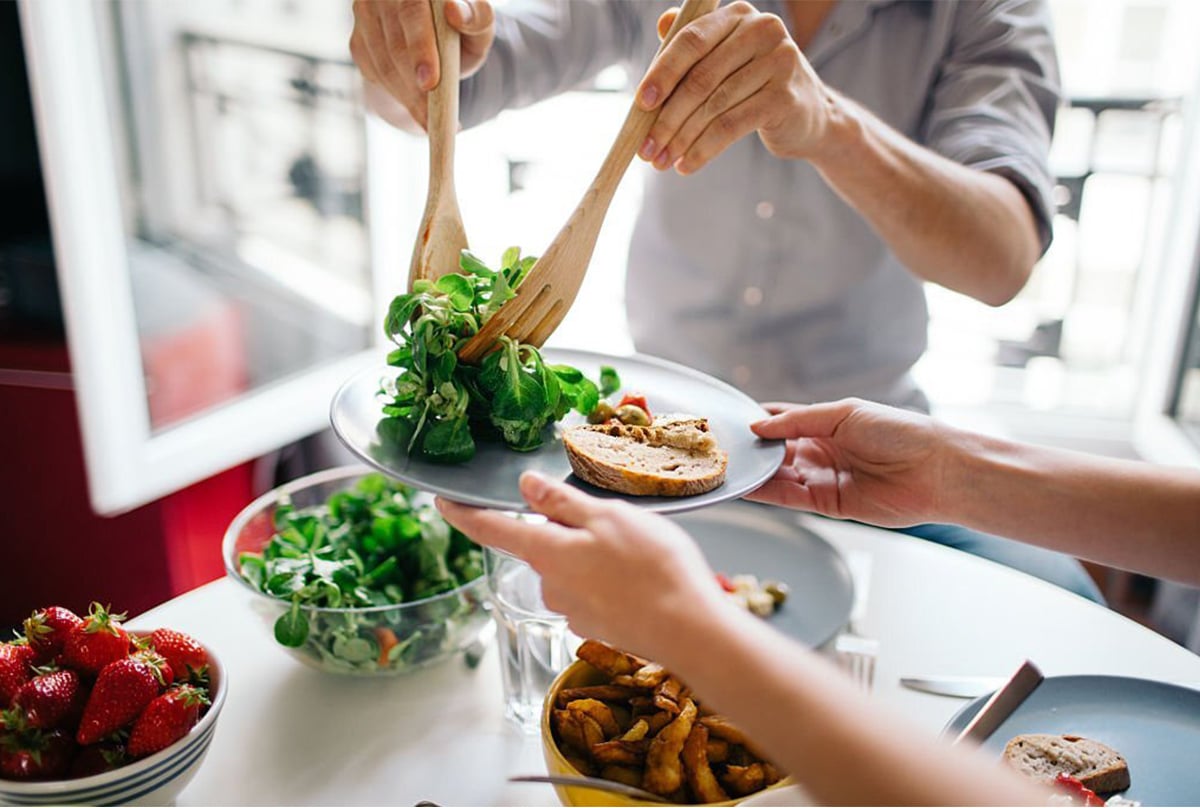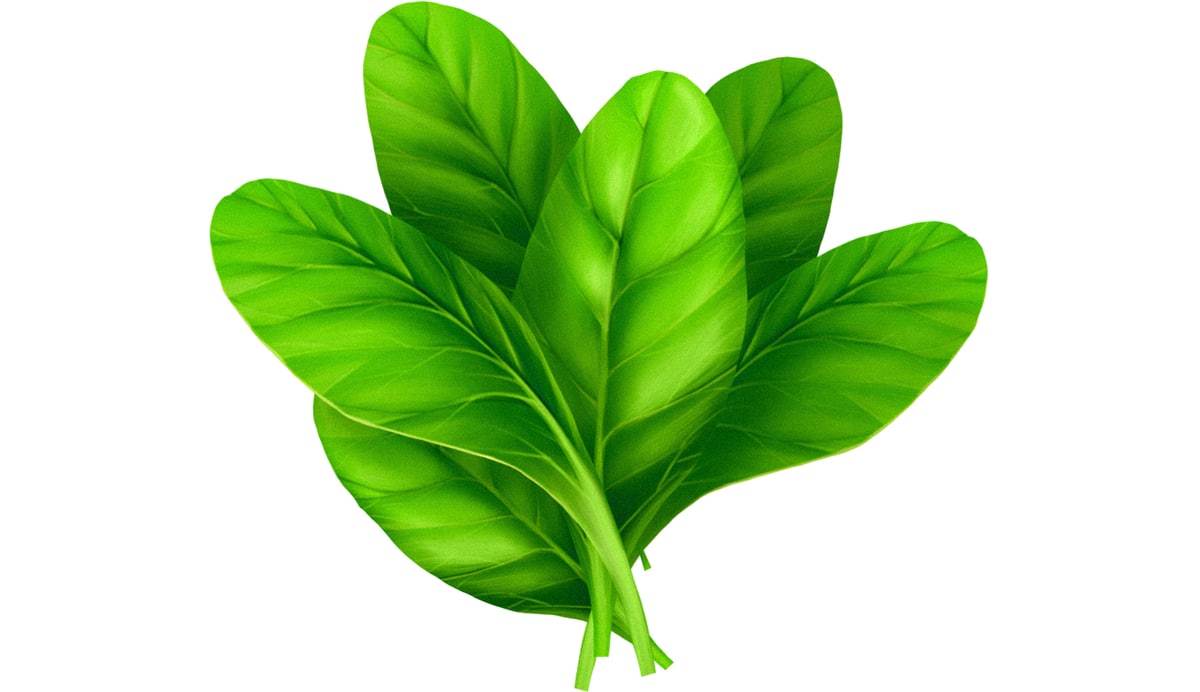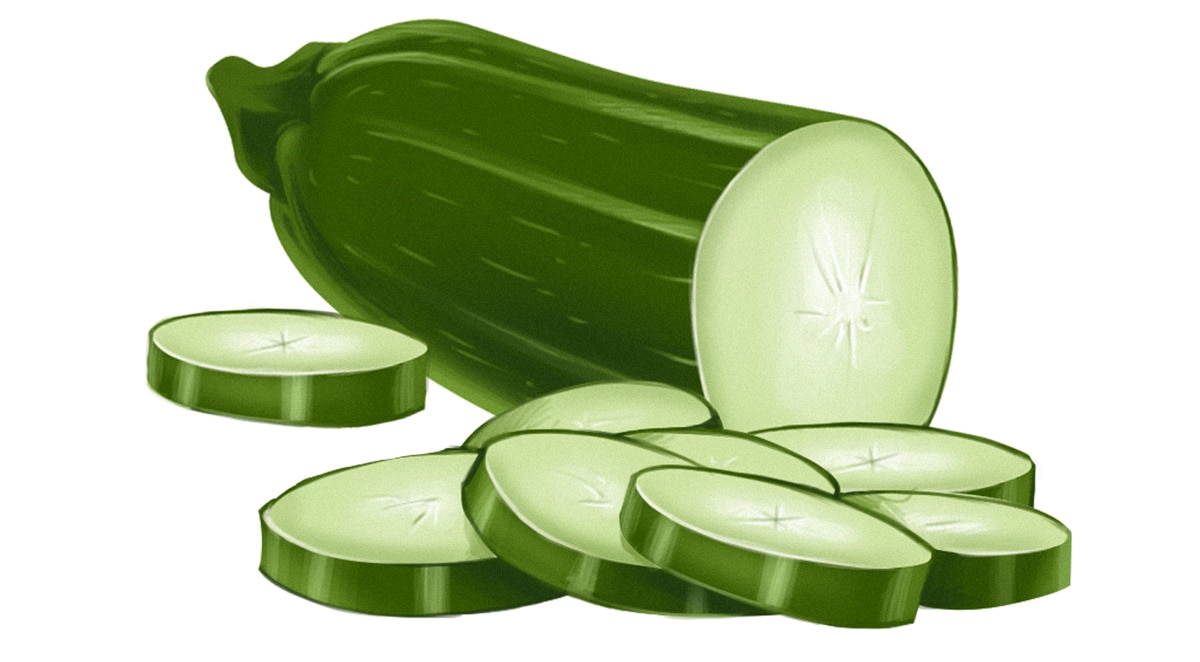
If you’re a bit lost with the low-carb life and don’t know where to start, here’s a 101 guide to the produce section. It doesn’t cover every single low-carb vegetable (you’d be here all day and probably forget most of them by the end of the list) but it does hit 5 basic staples that every low-carber should at least try. Start out with these and you’ll always have something in the fridge that you can throw together as a side dish or a quick salad.
1. Cauliflower, the amazing rice replacer
Use cauliflower as an easy low-carb substitute for all kinds of white starchy foods (potatoes, rice, pizza crust…). You can even buy it pre-grated into rice-sized grains now, no elbow grease required! It’s also tasty just tossed in the oven to roast with some olive oil and black pepper.
Carb count: Per 1 cup chopped raw cauliflower: 3.2 grams net carbs (5.3 grams total - 2.1 grams of fiber = 3.2 grams net)
Nutritional highlights: cauliflower is high in vitamin C and some B vitamins. It’s also rich in antioxidants, especially if you steam it or stir-fry it instead of boiling it to death. On the other hand, cauliflower can be hard to digest for some people because it’s high in FODMAPs, so if you have a really sensitive stomach, it might not be for you.
Recipe inspiration:
Substitutes: Broccoli or Brussels sprouts for something quick to roast; nut flours for Paleo/keto baking.
2. Spinach, the speed demon side

Spinach is incredibly easy and fast to cook, goes with almost everything, and makes a perfect delivery vehicle for butter. Or eat it raw as a more nutritious lettuce substitute in salads.
You can also buy bricks of frozen spinach and just throw them in a pot of soup or chili for some extra nutrition - it looks like a lot of spinach, but it really almost vanishes in the pot.
Carb count: Per 1 cup raw spinach: 0.39 grams of net carbs (1.09 grams total carbs - 0.7 grams of fiber = 0.39 grams net)
Nutritional highlights: Spinach is full of essential minerals, like magnesium and copper. It’s also high in folate and other B vitamins (notably B2 and B6) and even some iron (although the iron isn’t very easy to absorb, so you’re still better off eating meat). It’s pretty low in FODMAPs, so it should be fine for people with IBS or FODMAPs sensitivity.
Like other intensely green vegetables, spinach is also rich in chlorophyll. Chlorophyll is how the plant makes energy out of sunshine, but it’s also a powerful antioxidant. No need for an expensive greens supplement when you could just eat some leaves!
Recipe inspiration:
- Keto smoked salmon salad with spinach and mushrooms
- Creamy mushroom and spinach chicken
- Chorizo and spinach omelette
- Keto ham and spinach egg cups
Substitutes: lettuce for eating in salads; beet greens, kale, or chard for cooking.
3. Cabbage, the savior of grocery budgets
Cabbage is incredibly easy on the food budget. If you shop sales, you can get a big head for 40-50 cents/lb and sometimes even cheaper in the late fall when it’s in season. For budget-conscious shoppers, cabbage is definitely the vegetable to stock up on.
Carb count:Per 1 cup raw cabbage: 2.96 grams net carbs (5.16 grams total carbs - 2.2 grams of fiber = 2.96 grams net)
Nutritional highlights: Cabbage gives you all the benefits of other cruciferous vegetables - broccoli, cauliflower, kale, and the better-known members of the “superfood” crowd - at a budget price. It’s particularly full of vitamins K and C, plus anthocyanins, glucosinolates, and other antioxidants. Unfortunately, it’s also high in FODMAPs, so this would be another one to avoid if you’re sensitive to them.
Recipe inspiration:
- Keto slow-cooker cabbage casserole
- Simple keto coleslaw
- Cabbage-wrapped salmon (leave out the onions and peppers to reduce carbs if necessary).
- Keto egg roll in a bowl
Substitutes: Celery or cucumbers for something crunchy to eat cold. If you're looking for more budget-savers, frozen vegetables are typically just as nutritious as fresh (since they're picked at peak ripeness, so they lose nothing in travel/sitting in the store) and typically cheaper.
4. Zucchini, the noodlemaker
Zucchini is one of the best vegetable choices for making low-carb noodles (“zoodles”). Cauliflower might be great for other recipe replacements, but it’s pretty hard to make satisfactory noodles out of a cauliflower - zucchini is a little bendier and generally more suited to spiralizing. You can even buy it pre-noodled now, which is convenient for everyone on the run.
Carb count:Per 1 cup raw zucchini: 2.66 grams net carbs (3.86 total - 1.2 grams of fiber = 2.66 grams net)

For anyone wondering, zucchini is lower in carbs than spaghetti squash (the other vegetable typically used in Paleo noodles). 1 cup of raw spaghetti squash has about 5.5 grams of net carbs, compared to about 2.7 in raw zucchini. Or if you take them cooked, you’ll get just under 8 grams of net carbs in a cup of spaghetti squash, compared to about 3 in a cup of zucchini.
Nutritional highlights: One nutritional highlight of zucchini is everything it doesn’t have. Zucchini is OK for basically anyone to eat. Keto? Autoimmune protocol? FODMAPs sensitivity? No problem!
Recipe inspiration:
- Zucchini fries
- Keto zucchini noodles with tomato-basil sauce
- Lemon chicken kebabs with grilled zucchinis
- Zucchini gremolata
- Garlic shrimp with zucchini noodles
Substitutes: yellow squash (they’re basically the same thing) or spaghetti squash for a slightly higher-carb noodle substitute.
5. Avocado, the high-fat, low-carb fruit
Avocado is the only item on this list that’s technically a fruit and not a vegetable. In fact, it’s one of the few fruits with a low enough carb count that you can actually eat it on keto (read more about fruit on keto here).
Carb count: 3.65 grams net carbs (17.15 grams total carbs - 13.5 grams fiber = 3.65 grams net)
Nutritional highlights: The big selling point for avocados, other than the fact that they're delicious, is the fat. Avocados are packed with monounsaturated fat, the same kind found in olive oil, making it absolutely perfect for low-carb, high-fat diets. Particularly for people who don’t like eating a ton of butter or other animal fats, an avocado here and there is a great way to up the fat content in your diet.
Avocados are also a great source of vitamin E (especially important if you don’t eat a lot of nuts). Here's a more in-depth look at all their nutritional benefits.
Recipe inspiration:
- Grilled lamb burgers with avocado sauce
- Keto avocado egg salad
- Keto baked salmon with avocado salsa
- Avocado vegetable dip
What’s in your fridge?
What’s your favorite low-carb pick from the produce section? Let us know on Facebook or Twitter!





Leave a Reply